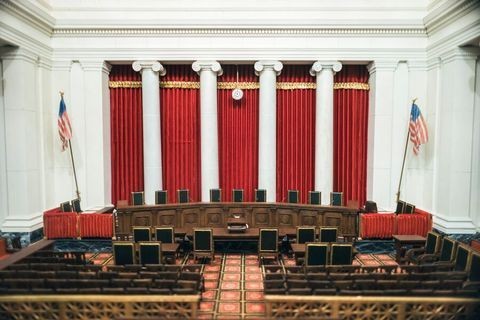Full Speed Ahead for San Francisco's Health Care Security Ordinance
Client Alert | 2 min read | 04.06.09
Opponents of the San Francisco Health Care Security Ordinance ("Ordinance") were once again disappointed on March 31, 2009, when U.S. Supreme Court Justice Anthony Kennedy refused an emergency request to stop enforcement of the Ordinance.
The Golden Gate Restaurant Association ("Association"), which represents a group of San Francisco employers, has been trying since 2006 to block the Ordinance, which requires certain employers to either contribute certain set amounts toward employee health care or else pay those amounts to the city (commonly referred to as a "pay or play" statute). The Association has argued that ERISA preempts the Ordinance, but the Ninth Circuit Court of Appeals last year disagreed and upheld the Ordinance. The denial of the emergency motion to the United States Supreme Court is another setback following the March 9, 2009 denial of the Association's request for a rehearing of the Ninth Circuit decision. While the Association plans to appeal the Ninth Circuit's decision to the Supreme Court, denial of the emergency petition means that the Ordinance will continue in effect unless the Supreme Court says otherwise, which may remain unknown for some time.
As the Association argued in its emergency request before Justice Kennedy, if the Ordinance is not preempted by ERISA, it could have significant national effects, in that other state and local governments may follow San Francisco's lead and implement similar local requirements. This would greatly complicate the provision of health care, especially for employers that cross multiple jurisdictions. Notably, San Francisco Mayor Gavin Newsome said, at the time of the enactment of the Ordinance, that he hoped it would be "something that can awaken people's imaginations elsewhere." The possibility of patchwork implementation of similar ordinances seems likely, as some commentators have noted that the Ordinance appears to have borrowed from model statutes already drafted by associations of state and local governments. As made clear in the Ninth Circuit's 2008 opinion upholding the Ordinance, the Ordinance also appears to have been carefully crafted to steer clear of the troubles that doomed a similar Maryland "pay or play" statute before the Fourth Circuit. If the Ordinance survives a challenge before the U.S. Supreme Court, it may soon be replicated by state and local governments across the country.
For a detailed discussion of the Ordinance, please see our December 10, 2008 Client Alert, Ninth Circuit Holds that San Francisco Health Care Security Ordinance is Not Preempted by ERISA on the Ninth Circuit opinion upholding the Ordinance.
We continue to follow the progress of this case, as well as the progress of various "pay or play" statutes under consideration by state and local governments across the country. If you have any questions about this case or about "pay or play" statutes, please contact any of the attorneys listed below or your regular Crowell & Moring contact.
Insights
Client Alert | 6 min read | 02.27.26
The U.S. Supreme Court’s February 20, 2026, opinion in Learning Resources. v. Trump (decided with Trump v. V.O.S. Selections), holding that the President lacks authority to impose tariffs under the International Emergency Economic Powers Act (IEEPA), is notable for many reasons — including its practical impact on the many U.S. companies who paid steep tariffs on global imports and may now be able to recover by filing suit before the Court of International Trade (CIT). That possibility and the key reasons for the High Court’s decision are discussed in our recent alert on this momentous decision.
Client Alert | 4 min read | 02.27.26
New Jersey Expands FLA Protections Effective July 2026: What Employers Need to Know
Client Alert | 3 min read | 02.26.26
Client Alert | 4 min read | 02.26.26


